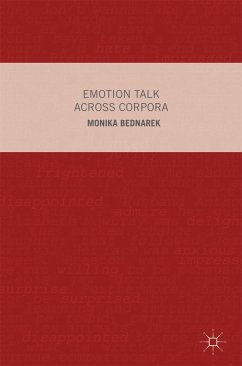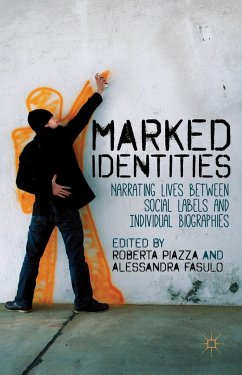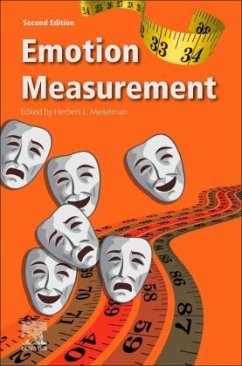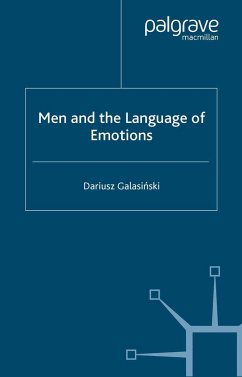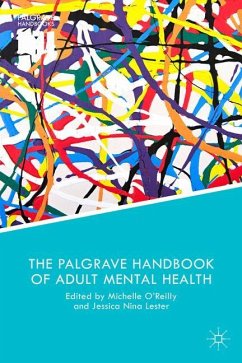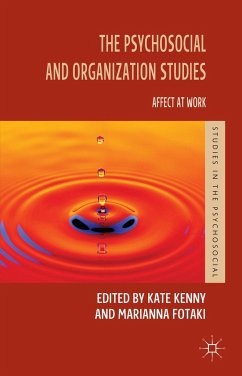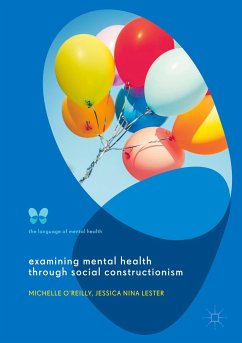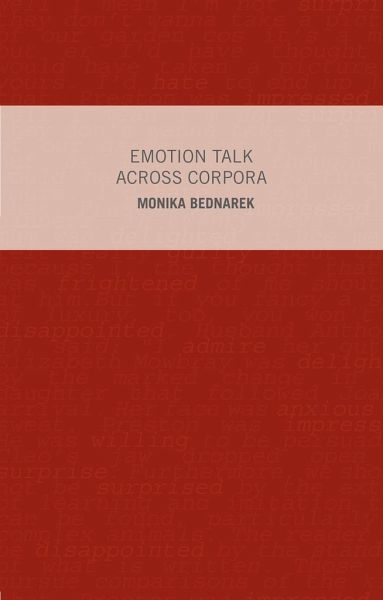
Emotion Talk Across Corpora
Versandkostenfrei!
Versandfertig in 6-10 Tagen
76,99 €
inkl. MwSt.
Weitere Ausgaben:

PAYBACK Punkte
38 °P sammeln!
This book offers new insights into how English speakers talk about their own and others' emotions. Using statistical evidence and corpus-linguistic methods, but also qualitative text analyses, the author examines how expressions that describe emotions are employed in a large corpus of conversational, newspaper, fictional and academic English.





